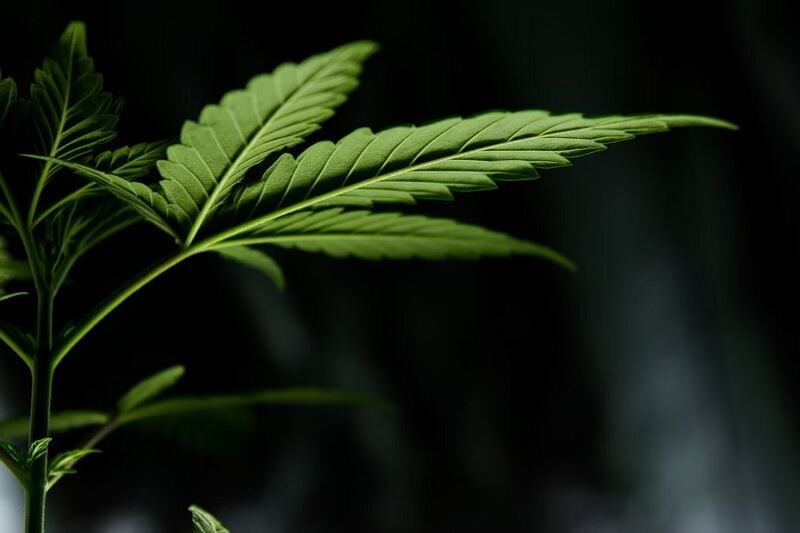Greening the Thai cannabis industry: Environmental effects

The legal landscape surrounding cannabis in Thailand has undergone significant transformations, opening new avenues for its cultivation and consumption. As you navigate through the complexities of these changes, understanding the specifics of how cannabis will be grown and the legalities involved is crucial. This section explores the agricultural practices and legal frameworks shaping the future of cannabis in Thailand.
How cannabis will be consumed and grown in Thailand?
The shift towards cannabis cultivation in Thailand has been marked by an emphasis on sustainable and controlled agricultural practices. Thai authorities are keen on ensuring that the growth of this industry does not adversely impact the environment. Cannabis cultivation in the country is moving towards greenhouses and controlled environments, following global trends that minimize the use of water, herbicides, fungicides, and fertilizers. This approach not only reduces chemical runoff but also promotes the efficient use of resources.
Farmers interested in entering the cannabis market must familiarise themselves with Good Agricultural Practices (GAP), which have been outlined by the Thai National Bureau of Agricultural Commodity and Food Standards. These standards cover everything from seed quality to crop management, ensuring that cultivation is both eco-friendly and produces high-quality cannabis.
Provinces where it’s legal to grow cannabis

The Thai government has designated specific provinces where cannabis cultivation is permitted. These areas have been selected based on their suitability for cannabis growth, including factors like climate, soil quality, and existing agricultural practices. Only authorized farms within these provinces are allowed to engage in cannabis cultivation, under strict supervision. Some of those include Mae Hong Son, Lampang, Phatthalung, Chon Buri etc.
Acquiring a license to cultivate cannabis in these provinces is not straightforward. Applicants must meet rigorous requirements, demonstrating the suitability of their farm for cannabis cultivation. This includes environmental considerations, preparation of the cultivation site, and even pre-orders for cannabis products from official doctors.
The Thai government’s approach to legalizing cannabis cultivation in selected provinces underlines a commitment to controlled, sustainable, and legal cannabis production. This focused strategy aims to ensure that the environmental impacts are carefully managed while enabling economic development in designated regions.
Legal Aspects
First off, understand the legal landscape. With the legalization for medical and general use, you’re required to adhere strictly to regulations set by the Thai Food and Drug Administration. This includes obtaining necessary permits for cultivation, distribution, and sales. Staying informed about these laws ensures your cultivation process remains hassle-free.
Climate Regions and Their Impact
Thailand’s diverse climate regions, ranging from tropical wet to dry, greatly influence cannabis cultivation. The northern highlands, with their cooler climate, might require different cultivation strategies compared to the humid south. Understanding the local climate is critical for selecting the right cannabis strains that thrive in specific conditions.
Chemical-Free Growing
First and foremost, chemical-free growing practices are at the heart of sustainable cannabis production. This method is pivotal because it ensures the cannabis you consume is free from synthetic pesticides and fertilizers, prioritizing your health and the planet’s well-being. Dispensaries across Thailand are increasingly committing to organic living ideals, ensuring that the final product remains pure, safe, and untainted by harmful substances.
Green marketing strategies and certification incentives
When you dive into the world of eco-friendly cannabis businesses in Thailand, it becomes clear that green marketing strategies and certification incentives stand out as crucial elements. They’re not just about being eco-conscious; they’re about smartly navigating the marketplace to your advantage.
Certification incentives are particularly noteworthy. Achieving certifications such as organic or carbon-neutral is more than a badge of eco-friendliness; it’s a powerful tool in the marketing arsenal. These labels signal to consumers that your products meet high environmental standards. The process for obtaining these certifications involves rigorous assessments and adherence to specified sustainability criteria. Yet, the effort is worth it. Here are the key benefits:
- Certified products can command higher prices in the market.
- They give dispensaries a competitive edge.
- Incentives for certification range from tax breaks to subsidies, recognition, and support from environmental groups.
This fosters a beneficial cycle of continuous improvement, encouraging more businesses to adopt sustainable practices.
Adopting green marketing strategies is another pivotal move. This involves promoting your products by highlighting their environmental benefits. For Thai cannabis dispensaries, this might involve showcasing commitments to:
- Organic farming
- The use of renewable energy
- Water conservation techniques
These practices not only showcase your dispensary’s commitment to reducing its carbon footprint but also resonate with an increasingly eco-conscious customer base.
Through effective green marketing and leveraging certification incentives, your dispensary can lead the way in sustainability within Thailand’s cannabis industry. Engaging with these practices not only contributes positively to the environment but also aligns with the growing consumer demand for businesses that take their ecological responsibility seriously.
Climate regions in Thailand

As you’ve seen, the environmental effects of cannabis cultivation in Thailand are significant, yet manageable with the right approach. By embracing sustainable practices, including environmentally-friendly packaging and collaborating with local producers, the cannabis industry in Thailand is on a path to becoming a leader in eco-consciousness. The move towards obtaining certifications like organic or carbon-neutral not only benefits the environment but also positions dispensaries to meet the increasing demand for eco-friendly products. Your support for these initiatives, whether as a consumer or a business, plays a crucial role in this transformation. With every step towards sustainability, Thailand’s cannabis industry is not just ensuring its own future but is also contributing to a global shift towards more responsible and environmentally friendly practices. Remember, your choices have the power to drive change and pave the way for a greener, more sustainable future in cannabis cultivation and beyond.
If you would like to explore some more eco-friendly practices included in growing cannabis in Thailand, You can also check it here.
Latest Thailand News
Follow The Thaiger on Google News:


























